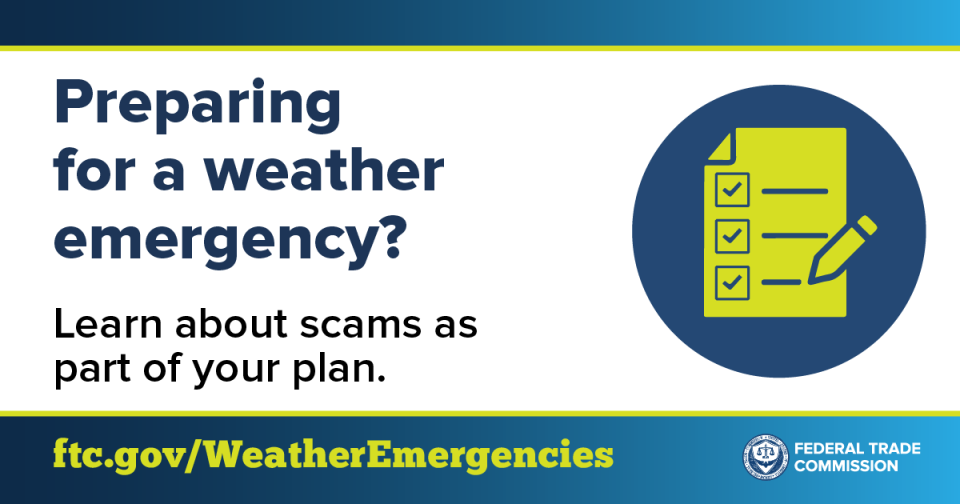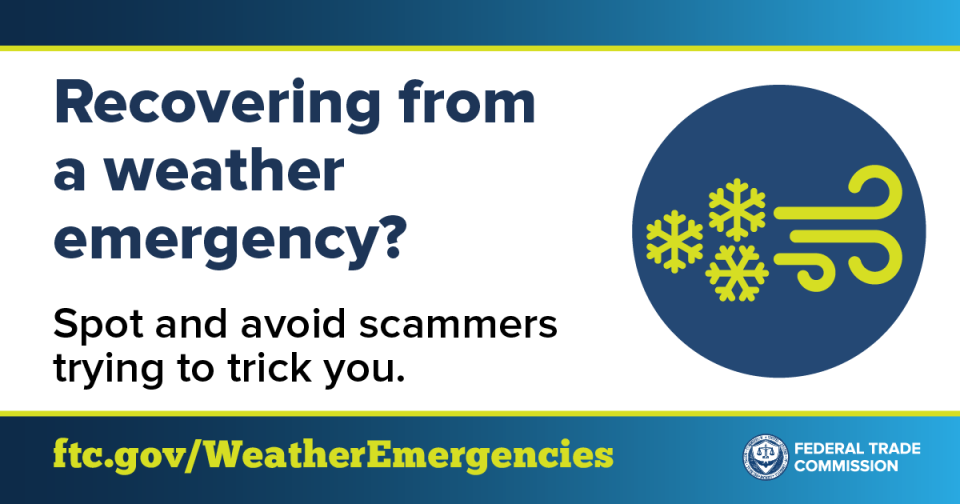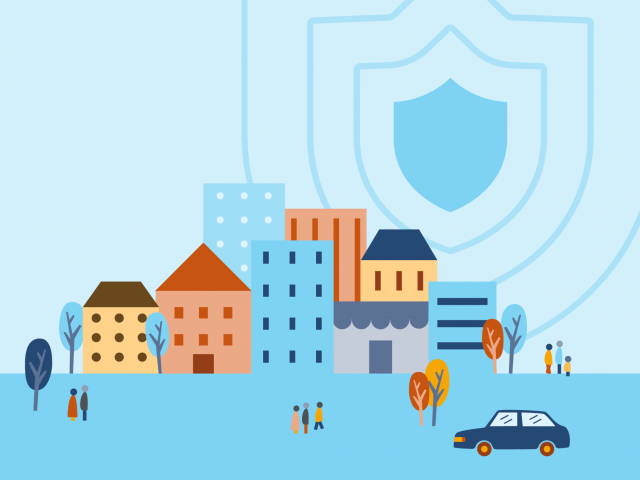How to avoid scams before and after a weather emergency
Extreme weather and natural disasters can occur with little warning, leaving you to make critical decisions when you may feel rushed. The information here will help you spot, avoid, and report scams as you prepare for, deal with, and recover from extreme weather and natural disasters.
Articles
How To Prepare for a Weather Emergency While Avoiding Scams
Advice to help you know what scams look like after a weather emergency, and how to make plans to avoid them.
How To Organize Your Important Papers Before a Disaster Strikes
Advice to help you organize important documents and information and complete a household inventory.
How To Avoid Scams After Weather Emergencies and Natural Disasters
Advice to help you choose a contractor, pay wisely, and handle problems along the way.
How To Get Back on Track After a Weather Emergency
Advice to help you get your finances back on track after a weather emergency.
Share These Resources
Picking Up the Pieces after a Disaster
Use this customizable one-page handout. Add local consumer protection and emergency service contacts, print copies, and distribute them throughout your communities.
Get Hawaii wildfire resource in multiple languages.
Social Media Shareables
Use these social images to share advice about how to avoid scams before and after a weather emergency.






Watch Videos
Share these videos. Subscribe to YouTube.com/FTCvideos.
Charity Scams After a Disaster
When a natural disaster hits or a tragic event happens, you might be looking for ways to help the people and communities affected. Unfortunately, scammers also are busy trying to take advantage. You want to make sure your money gets in the hands of charities you want to help.
How to Report Fraud at ReportFraud.ftc.gov
This video shows you how to report scams, fraud, and bad business practices to the Federal Trade Commission at ReportFraud.ftc.gov and why it’s important to do it.


